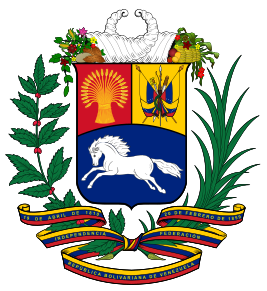 W
WA referendum on convening a Constituent Assembly was held in Venezuela on 25 April 1999. Voters were asked two questions;Should a Constituent Assembly be convened? Do you agree with the President's suggestion of how the Assembly should be elected?
 W
WA constitutional referendum was held in Venezuela on 15 December 1999. Voters were asked whether they approved of the new constitution drawn up by the Constitutional Assembly elected earlier in the year. The question was:Do you endorse the new Constitution drafted by the National Constituent Assembly?
 W
WConstituent Assembly elections were held in Venezuela on 25 July 1999, following a referendum on April on convening one. For the election two large coalitions were created; Polo Patriótico, which consisted of the Fifth Republic Movement, the Movement for Socialism, Fatherland for All, the Communist Party of Venezuela, the People's Electoral Movement and some other minor parties, and Polo Democrático consisting of Democratic Action, Copei, Project Venezuela and Convergencia. The result was a victory for Polo Patriótico, which won 121 of the 128 seats, whilst an additional three seats were taken by representatives of indigenous communities elected by indigenous associations. Despite the apparent high number of votes, voter turnout was only 46.2%, as each voter had 10 votes.
 W
WThe Constituent National Assembly or ANC was a constitutional convention held in Venezuela in 1999 to draft a new Constitution of Venezuela, but the assembly also gave itself the role of a supreme power above all the existing institutions in the republic. The Assembly was endorsed by a referendum in April 1999 which enabled Constituent Assembly elections in July 1999. Three seats were reserved for indigenous delegates in the 131-member constitutional assembly, and two additional indigenous delegates won unreserved seats in the assembly elections.
 W
WThe Constitution of the Bolivarian Republic of Venezuela is the current and twenty-sixth constitution of Venezuela. It was drafted in mid-1999 by a constituent assembly that had been created by popular referendum. Adopted in December 1999, it replaced the 1961 Constitution, the longest-serving in Venezuelan history. It was primarily promoted by then President of Venezuela Hugo Chávez and thereafter received strong backing from diverse sectors, including figures involved in promulgating the 1961 constitution such as Luis Miquilena and Carlos Andrés Pérez. Chávez and his followers (chavistas) refer to the 1999 document as the "Constitución Bolivariana" because they assert that it is ideologically descended from the thinking and political philosophy of Simón Bolívar and Bolivarianism. Since the creation of the Constituent National Assembly in August 2017, the Bolivarian government has declared the 1999 constitution suspended until a new constitution is created.
 W
WCubana de Aviación Flight 310 was a scheduled international flight from José Martí International Airport, Havana, Cuba, to Arturo Michelena International Airport, Valencia, Venezuela, which crashed near Bejuma, Venezuela, on 25 December 1999. All 22 people on board were killed.
 W
WThe Vargas tragedy was a natural disaster that occurred in Vargas State, Venezuela on 14–16 December 1999, when torrential rains caused flash floods and debris flows that killed tens of thousands of people, destroyed thousands of homes, and led to the complete collapse of the state's infrastructure. According to relief workers, the neighborhood of Los Corales was buried under 3 metres (9.8 ft) of mud and a high percentage of homes were simply swept into the ocean. Entire towns including Cerro Grande and Carmen de Uria completely disappeared. As much as 10% of the population of Vargas died during the event.